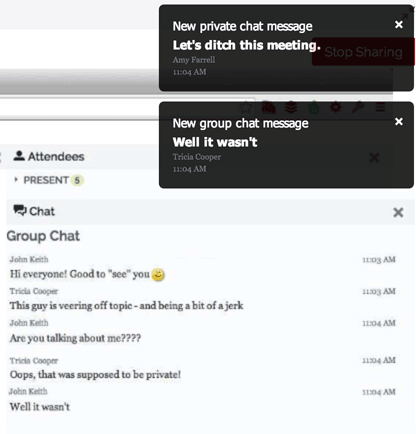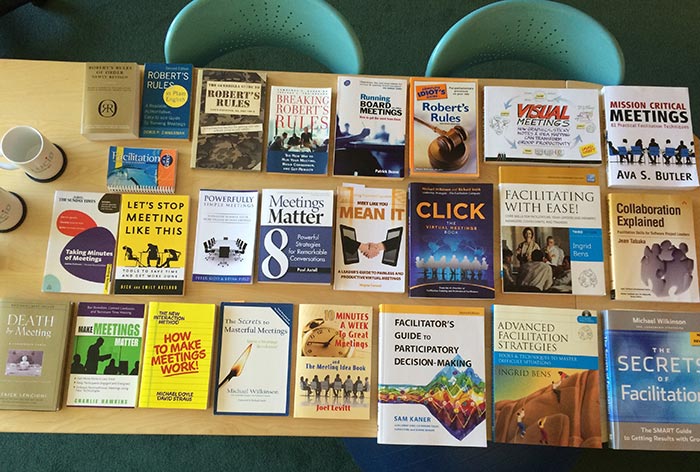Examine your meetings, question your culture

While building Lucid Meetings, we interviewed a lot of people about how meetings work in their companies, the problems they have and how they solve them.
We heard from several people who experienced issues with poor preparation, an inability to reach decisions, and teams that didn’t follow through with the plans made during the meeting.
For those companies that have these issues, they are pervasive and debilitating.
None of this was a surprise – after all, that’s why we’re working on this project. What did surprise us was the sense of defeat we heard from many of the people who felt their meetings were broken. Most of these people were middle managers or project managers, people who spend their days in meetings but have no real authority over the tools they use or the company’s expectations around teamwork.
When we’d talk with them about how we could help them begin to change their meetings, they’d reply along the lines of “Oh, that would be really wonderful, but you have to understand – it’s really a total culture issue.”
That’s right: these people saw unproductive meetings that wasted their time and didn’t help them get work done as part of their corporate culture, and therefore beyond their ability to change.
Ron Ashkenas’s article, “Why You Should Question Your Culture”, perfectly echoed what we found. Claiming dysfunction as part of the corporate culture places these problems in the hands of someone else – perhaps the executive team or the CEO or HR – but not with those who do most of the day-to-day production.
Mr. Ashkena charges leaders to question their organizational culture and suggests several ways you can begin to make this soupy problem of culture both concrete and actionable. I’ll add to his suggestions by encouraging you to spend focused time observing your meetings.
Nowhere are cultural issues more apparent than in meetings. Does your group’s consensus-driven approach lead to unclear decisions and and weak commitment towards action? How many of the people invited to a meeting are there because the organizer didn’t want to cause offense, or worse, didn’t know who actually had the necessary authority to make a decision?
How many team members are actively disengaged – arriving late, not contributing, or pulling a “hard stop” before achieving the meeting goal?
Leaders: watch your meetings for signs of disenfranchisement in your teams and clues leading to the underlying cultural problems that are pushing people away. A habit of bad meetings may simply indicate that your teams lack basic meeting proficiency, which can be solved with tools and practice.
Quite often, though, bad meetings are a sign of a more pervasive cultural issue. In either case, adopting the good meeting principles of clear, timely and respectful communication for all projects and teams is a practical way to take immediate steps for improvement.
Image: telelinq.be



